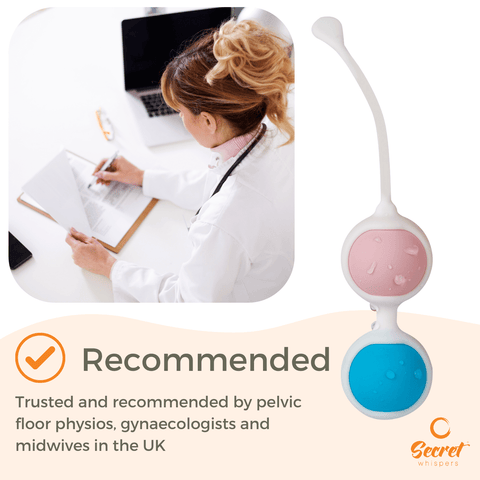Why Am I Getting Up So Much At Night To Pee?
Waking up multiple times during the night to urinate, a condition known as nocturia, can be frustrating and disruptive to your sleep. While it’s normal to wake up occasionally to use the bathroom, frequent trips could indicate an underlying issue.
In this blog, we’ll explore the causes of nocturia, how to manage it, and effective tips to help reduce those nighttime visits to the bathroom.
How Do I Stop Getting Up to Pee at Night?
Stopping frequent nighttime urination begins with understanding the underlying causes. The first step is to evaluate your lifestyle and habits:
-
Limit Evening Fluid Intake: Avoid drinking large amounts of fluids, especially alcohol, caffeine, or diuretics, in the hours leading up to bedtime. These substances can increase urine production and stimulate the bladder.
-
Schedule Bathroom Breaks: Try to urinate right before going to bed, even if you don't feel the urge. This can help empty your bladder and reduce the chances of needing to go again during the night.
TIP: Once you feel that you have finished, try rocking side to side and back and forth to ensure you have fully emptied your bladder fully. -
Elevate Your Legs: If you suffer from fluid retention in your legs, elevate them in the evening. This helps shift the fluid back into your bloodstream, where it can be processed and eliminated before you sleep.
Peeing a Lot at Night (Nocturia): Causes and Treatment
Nocturia is a symptom rather than a condition, and its causes vary. Understanding these causes can guide your approach to treatment.
-
Aging: As we age, our bodies produce less of the hormone that helps concentrate urine, leading to increased nighttime urination.
-
Medical Conditions: Conditions like diabetes, heart disease, or urinary tract infections (UTIs) can contribute to frequent nighttime urination. Medications, particularly diuretics, can also play a role.
-
Overactive Bladder: This condition can cause a sudden, uncontrollable urge to urinate, even if your bladder isn’t full. This may lead to waking up multiple times during the night.
-
Sleep Apnea: Sleep apnea can also be linked to nocturia. When breathing repeatedly stops and starts during sleep, it triggers an increase in urine production.
Treatment for Nocturia:
This involves addressing the underlying cause. If a medical condition is responsible, treating that condition may alleviate your symptoms. In other cases, lifestyle changes, bladder training, or pelvic floor exercises like Kegel exercises can be beneficial.
7 Tips To Help Stop Night Time Peeing
Reducing nighttime bathroom trips is possible with a few simple strategies:
-
Perform Kegel Exercises: Strengthening your pelvic floor muscles with Kegel exercises can help manage bladder control. Secret Whispers Kegel Weights are designed to make these exercises more effective, get pelvic floor muscles stronger faster and potentially reducing the frequency of nocturia.

-
Manage Fluid Intake: Spread out your fluid intake during the day and reduce it in the evening.
-
Watch Your Diet: Avoid foods and drinks that irritate the bladder, such as spicy foods, caffeine, and artificial sweeteners.
-
Maintain a Healthy Weight: Excess weight can put pressure on your bladder, increasing the urge to urinate.
-
Treat Underlying Conditions: If nocturia is related to a medical issue, work with your healthcare provider to manage it effectively.
-
Practice Bladder Training: Gradually extend the time between your bathroom visits during the day to increase your bladder’s capacity.
-
Create a Comfortable Sleep Environment: A quiet, dark, and cool bedroom can help you fall back asleep quickly if you do wake up during the night.
Conclusion
Waking up frequently to pee can be bothersome, but it’s often manageable with the right approach. By understanding the causes of nocturia and implementing practical strategies—like using Secret Whispers Kegel Weights to strengthen your pelvic floor muscles—you can reduce the frequency of those nighttime trips and enjoy more restful sleep.
Secret Whispers Pelvic Floor Kegel Weights
Recommended by many Pelvic Floor Physios and Gynaecologists to help strengthen and tone your pelvic floor muscles. They are designed to teach you where your correct pelvic floor muscles are, how to do an effective Kegel Exercise and get results faster than just doing Kegels alone.
Check out all the reviews here
IF YOU FOUND THIS BLOG USEFUL YOU MAY LIKE:
You can also join our fabulous womens only private Facebook Group
Never miss another blog again. Sign up now to our weekly Newsletter. You will get a 10% discount code to use too. Just click below ⬇️⬇️⬇️












